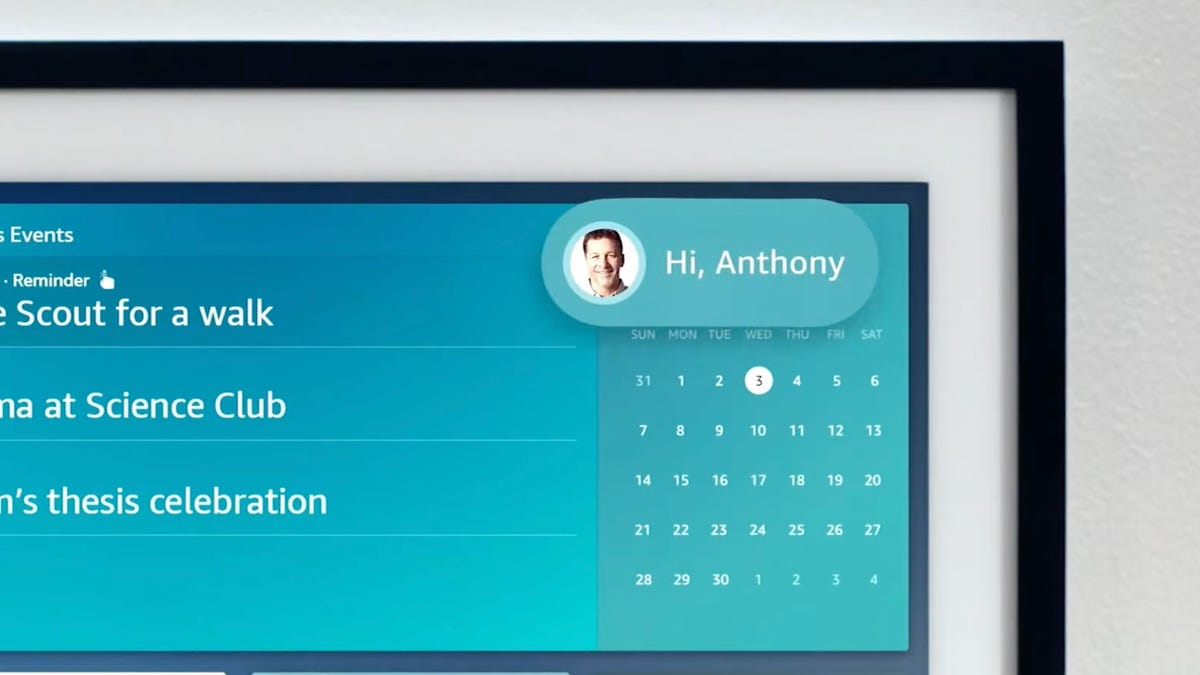On Echo Show 15, Alexa will recognize your face thanks to Amazon's Visual ID
The facial recognition feature is designed to recognize you whenever you're in front of the camera, so Alexa can show you personalized content.

During its virtual launch event Tuesday for the Echo Show 15, Amazon unveiled a new facial recognition feature for the smart home device. Called Visual ID, the feature is designed to let Alexa show you personalized recommendations, calendars, to-do lists and more when your face is captured by the camera. It's supported on the Echo Show 8 (2nd Gen), the Echo Show 10 (3rd Gen), and the new Echo Show 15.
The Echo Show 15 gets its computer vision processing capabilities from its AZ2 processor. Last year's Echo and Echo Dot speakers had the AZ1 chip, which allowed for enhanced voice processing.
Amazon says that because the AZ2 chip can process what the camera is seeing, all the computer vision processing happens on the device, without any data being sent to the cloud. Visual ID is optional and turned off by default. You'll have to opt in and enroll your facial profile to use the feature. This profile won't be sent to any other devices, the company says.
Amazon's use of facial recognition technology in its other smart home products has seen pushback from privacy advocates. In December 2019, thousands of Amazon Ring users' personal information was exposed, leading us to stop recommending Ring products. (Ring's approach to privacy has drawn heavy criticism in the past two years. For more, read this deep dive into Ring's current policies by CNET's David Priest.) Ring has since updated its security policies, mandating two-factor authentication, adding end-to-end video encryption and introducing CAPTCHA and authenticator app support.



